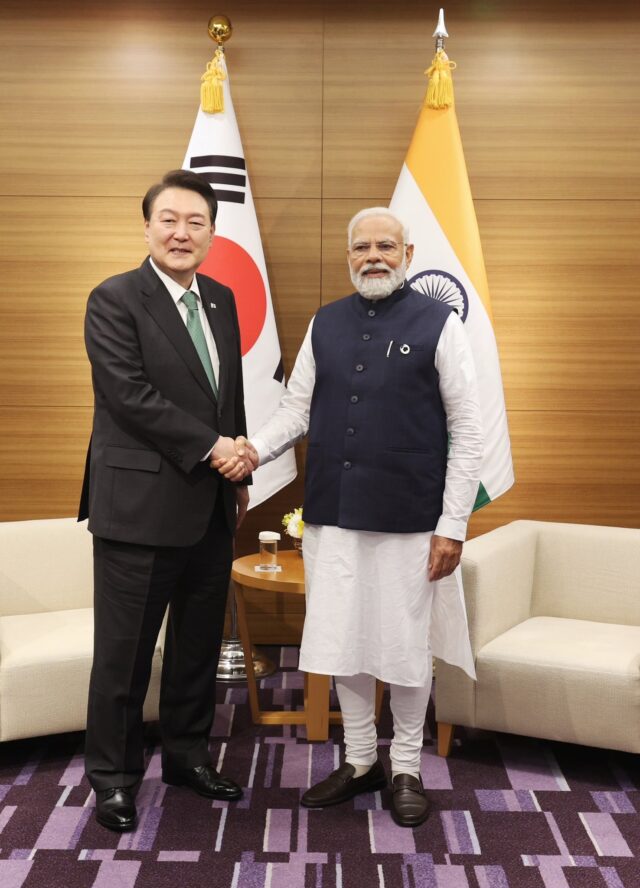South Korean President Yoon Suk Yeol met with Indian Prime Minister Narendra Modi on Saturday and promised to strengthen collaboration in the defence and bio-health sectors, according to Yoon’s office.
The meeting occurred on the fringes of the G7 summit in Hiroshima, Japan, since South Korea and India were invited as guest countries to the summit. The two leaders met in Hiroshima on the margins of the Group of Seven (G7) summit of advanced economies.
PM Narendra Modi met with President KR Yoon Suk Yeol and had an effective meeting. The Republic of Korea and India have a warm friendship and profound cultural ties. According to the Ministry of External Affairs (MEA), the discussions focused on measures to strengthen this friendship in important development sectors. In “Advancing a Special Strategic Partnership, it claimed, PM Narendra Modi met with Republic of Korea President Yoon Suk Yeol.
During the discussion, they reaffirmed their resolve to further develop bilateral relationships as the two countries mark the 50th anniversary of diplomatic relations this year, according to the statement.
According to the ministry, they committed to expanding their collaboration in commerce and investment, IT hardware production, high technology, defence, culture, and semiconductors.
According to the report, they also dealt with India’s G20 leadership and South Korea’s Indo-Pacific strategy. India currently holds the G20 grouping’s presidency. In December 2022, South Korea released its first comprehensive regional plan, the Indo-Pacific strategy.
In the face of China’s escalating military maneuvering in the resource-rich region, the United States, India, and other world powers have been discussing the importance of ensuring a free, open, and vibrant Indo-Pacific.
Relations between India and the Republic of Korea (RoK) have advanced significantly in recent years, becoming fully multidimensional as a result of a considerable convergence of interests, high-level interactions, and mutual goodwill. Bilateral liaisons were established in 1962 and elevated to ambassador-level status in 1973. Over time, the Republic of Korea’s free market policies resonated with India’s economic liberalization, “Look East Policy” and “Act East Policy.”
India stood behind Korea in every way, especially after Korea gained independence in 1945. Both of these countries share strong political principles and mutually support each other. India-South Korea relations operate through the G-20, the Asian Infrastructure and Investment Bank (AIIB), and the East Asian Summit.
Following the adoption of CEPA in 2010, trade and economic relations regained momentum, and bilateral commerce in 2011 exceeded USD 20.5 billion, representing a 70% increase over a two-year period.
As of March 2017, major Korean corporations such as Samsung, Hyundai Motors, and LG had invested more than $4.43 billion in India.









